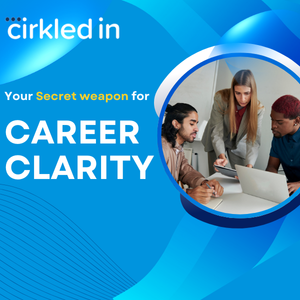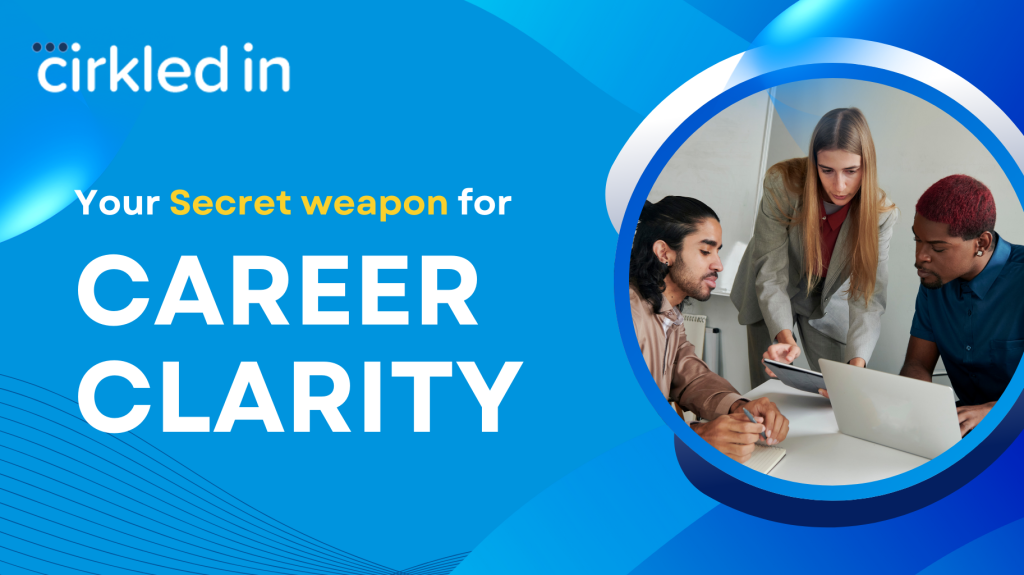Informational Interviews: Your Secret Weapon for Career Clarity (How to Conduct Them Like a Pro)

Navigating the world of careers can feel overwhelming. How do you know if a particular industry or job role is the right fit for you? Informational interviews are a powerful tool for gaining career clarity, exploring your options, and making informed decisions about your future. This guide provides a deep dive into informational interviews: what they are, why they are beneficial, and how to conduct them like a pro.
Informational interviews are key to career clarity. Use Cirkled In to find professionals and expand your network for these valuable conversations.

What Are Informational Interviews (and What They Are NOT)
It’s important to understand the distinction between an informational interview and a job interview:
- Informational Interview:
- A conversation with a professional to learn about their career path, industry, or company.
- Focus is on gathering information and advice, NOT on seeking a job.
- You are the interviewer, seeking insights to inform your own career exploration.
- Job Interview:
- A formal interview conducted by an employer to assess your qualifications for a specific job opening.
- Focus is on showcasing your skills and experience to secure a job.
The Power of Informational Interviews: Why They Are Crucial for Career Exploration
Informational interviews offer numerous benefits for students:
- Gain Industry Insights: Learn firsthand about industry trends, challenges, and opportunities.
- Explore Different Career Paths: Discover various job roles and career paths within a specific field.
- Get Career Advice: Receive valuable guidance and advice from experienced professionals.
- Build Your Network: Expand your professional connections and create potential mentors or contacts.
- Validate Your Interests: Confirm your interest in a particular field or discover that it’s not the right fit.
- Improve Your Communication Skills: Practice your networking and interviewing skills in a low-pressure setting.
- Increase Your Confidence: Gain clarity and direction for your career path, boosting your confidence in your job search.
Finding People to Interview: Expanding Your Network
Identifying professionals to interview is a crucial first step:
- Your Existing Network: Start with your current connections:
- Family and friends
- Professors and advisors
- Alumni from your school
- LinkedIn:
- Search for professionals in your field of interest.
- Join relevant groups and engage in discussions.
- Reach out to people for informational interviews (be polite and clear about your purpose).
- Career Fairs:
- Connect with professionals at career fairs and ask for informational interviews.
- Professional Organizations:
- Many organizations have members who are willing to mentor students.
Preparing for the Interview: Your Questions are Key
Thorough preparation is essential for a productive informational interview:
- Research the Person and Their Career:
- Learn about their background, experience, and current role.
- This will help you ask relevant and insightful questions.
- Prepare Thoughtful Questions:
- Focus on open-ended questions that encourage detailed responses.
- Organize your questions into categories (e.g., career path, industry insights, skills and advice).
- Sample Questions:
- “Could you describe your typical workday?”
- “What do you enjoy most and least about your job?”
- “What skills are essential for success in this field?”
- “What advice would you give to someone starting out in this industry?”
- “How has the industry changed over the years?”
- “What are the biggest challenges and opportunities in this field?”
- “What resources or professional organizations do you recommend?”
- “Can you recommend anyone else I could speak with to learn more?”
- Prepare Your Introduction:
- Craft a concise and professional introduction of yourself.
- Clearly state your purpose for the informational interview.
During the Interview: Building Rapport and Gaining Insights
The interview is your opportunity to learn and build a connection:
- Be Punctual and Professional:
- Arrive on time or join the virtual meeting promptly.
- Dress appropriately (even for a virtual interview).
- Build Rapport:
- Start with a friendly greeting and express your gratitude for their time.
- Show genuine interest in their career journey.
- Ask Your Prepared Questions:
- Guide the conversation with your prepared questions.
- Be flexible and allow the conversation to flow naturally.
- Listen Actively:
- Pay close attention to their responses.
- Ask follow-up questions to clarify or delve deeper.
- Take Notes:
- Take brief notes to remember key points and insights.
- Be Mindful of Time:
- Stick to the agreed-upon timeframe.
- Be respectful of their time.
- End with Gratitude:
- Thank them sincerely for their time and valuable insights.
- Reiterate your appreciation.
After the Interview: Follow-Up and Next Steps
Following up is crucial for maintaining the connection and demonstrating your professionalism:
- Send a Thank-You Note:
- Send a personalized thank-you note within 24 hours.
- Express your gratitude for their time and specific insights.
- Connect on LinkedIn:
- Connect with the person on LinkedIn to stay in touch.
- Personalize your connection request message.
- Reflect on What You Learned:
- Review your notes and reflect on the key takeaways from the interview.
- Consider how the information aligns with your career goals.
- Stay in Touch (Appropriately):
- Keep the connection alive by occasionally sharing relevant articles or updates.
- Don’t be overly demanding or expect constant mentorship.
Action Plan: Launch Your Informational Interview Campaign
- Identify Target Professionals:
- Make a list of 3-5 people you would like to interview.
- Craft Your Outreach Message:
- Develop a template for requesting an informational interview.
- Schedule Your Interviews:
- Reach out to your target professionals and schedule interviews.
- Prepare Your Questions:
- Develop a list of thoughtful questions for each interview.
- Conduct Your Interviews:
- Follow the guidelines for conducting effective informational interviews.
- Follow Up:
- Send thank-you notes and connect on LinkedIn after each interview.
Unlock your career potential through informational interviews. Cirkled In can help you connect with the right people and gain crucial insights.
Final Thought: Unlock Your Future Through Informational Interviews
Informational interviews are a powerful tool for career exploration and clarity. By actively seeking out these conversations, you can gain valuable insights, build your network, and make informed decisions about your future. Embrace the opportunity to learn from experienced professionals and unlock the path to a fulfilling career.
Need more tips on college applications, scholarships, or just how to survive this whole process? Cirkled In has your back—check out Cirkled In resources to help you through every step of your college journey!

![The Future of Work in [Specific Industry]](https://www.cirkledin.com/library/wp-content/uploads/2025/03/Career-Planning-31-360x240.png)

0 Comments